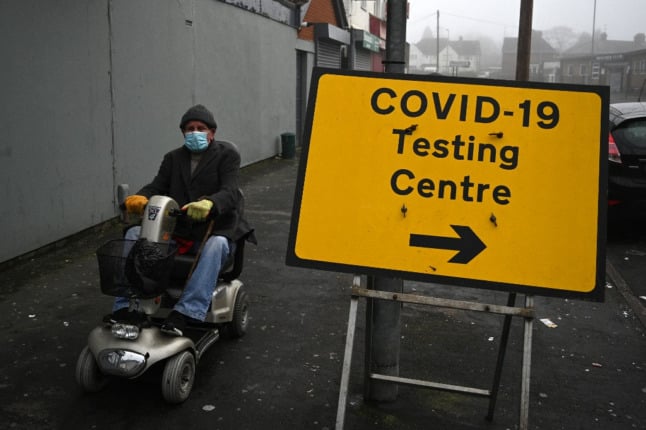Testing sites are ubiquitous in Switzerland with practically every community offering various screening venues and options.
They are, however, intended primarily for those who have Swiss health insurance, as the government is assuming the cost of tests for all residents, with the exception of tests needed for travel.
What about foreign visitors?
You need a test before coming to Switzerland
Most people arriving in the country are required to have a negative PCR or antigen test, which is not older than 72 hours.
However, there may be circumstances preventing you from having this test — for instance, there are no testing facilities in your country of origin, or it is not possible to have results delivered within 72 hours.
In fact, you will have to fill out a form certifying that you had no possibility to get tested prior to travelling.
If this is your case, you must be tested immediately upon arrival at the airport in Zurich, Geneva or Basel.
READ MORE: Swiss government under fire for failing to close coronavirus travel loopholes
You will have to pay for those tests yourself and while you wait for your results you may have to go into quarantine. Local officials will inform you accordingly.
You think you may have contracted the virus while in Switzerland
In this case, and regardless of which country you came from, you must get tested immediately.
Some screening centres require appointments, while others don’t. You can the find the centre nearest to you, as well as opening hours and whether appointment is needed here.
As you are not a resident of Switzerland and presumably don’t have Swiss health insurance, you will have to pay for the tests yourself. Prices vary depending on the location.
You will also have to quarantine until the test results are known.
You need a test to travel back to your country.
Here too, you should contact the centre nearest to where you are and request a travel certificate, for which you will have to pay.
The price will depend on whether you need a PCR or antigen test, the latter being the cheaper of the two.
If only an antigen test is needed, and if you are leaving by air, then you can get tested before your flight at one of the airports mentioned above.
This information applies to tests right now. The rules may change when the international Covid / immunity pass becomes available this summer.
The Local will update the information as it becomes available.
READ MORE: PCR, rapid and self-tests: Your guide to coronavirus testing in Switzerland



 Please whitelist us to continue reading.
Please whitelist us to continue reading.
A law passed at Federal level in February 2021 extended free Covid vaccination to all CH residents irrespective of whether or not they have a Swiss health insurance. So your comment about vaccinations being limited to residents with Swiss health insurance is inaccurate.
Robert Leigh